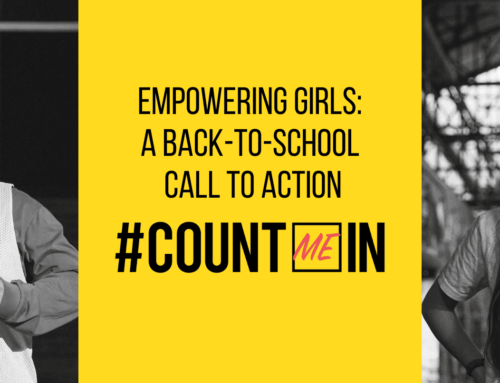
Every parent wants their child to have a healthy balance of interests. But how can we tell when they’re on track, and how do we help when they’re not?
One of the best ways is to ensure girls have a variety of “connection points,” including family, friends, school, community activities, and personal interests. Focusing too much on just one connection, narrows her sources of validation. If she loses this connection, she becomes at risk of feeling overwhelmed or losing her sense of identity. By helping girls develop multiple ways to connect, they become more resilient and learn to buffer themselves from potential losses.
Achieving a healthy balance isn’t an exact science: the right mix of connections will be different for each girl, and will likely change as she grows older and develops new interests.
TIPS FOR PARENTS ON HEALTHY CONNECTIONS
1. WITH FAMILY: Adolescence is when many girls start spending more time with friends than family. However, maintaining a strong family connection will provide her with stability and support. Connect through family meals or chatting in the car, plus fun shared activities such as hobbies or sports.
2. WITH FRIENDS: Having intense friendships can be very healthy for girls, as long as they provide positive role models. Even if some peers have a negative influence, strong connections in other areas of her life can help girls make the right choices.
3. IN COMMUNITY: Encourage her to join after-school groups, clubs, or other activities. Expanding her social network can offer relief from peer pressures at school and help her to discover new interests. Ensure the groups provide a safe space where all girls are equally valued.
4. WITH A MENTOR: Research shows having a positive older role model can help to offset negative peer influences. When a girl has a mentor that she admires and respects, she is much less likely to seek validation from unhealthy relationships or submit to peer pressure.
5. ONLINE: Social media can provide a powerful sense of belonging, especially for young people but many parents are concerned about the amount of time their children spend online. Avoid being overly controlling, which can weaken the parent-child connection. Rather than taking away her technology, focus on teaching her to stay safe online.
6. WITH HERSELF: Our strongest connections are usually those we choose ourselves. Let her lead the way by asking her about her interests. Teach her the value of self-reflection and how to discover her own goals, then encourage her to form connections that will help her to achieve them.
This article originally appeared in the Spring 2015 issue of SHE – The Canadian Women’s Foundation magazine.
Learn More
- How to help your teen recognize unhealthy online relationships
- 5 Reasons Why Confidence Matters
- A Mentor Can Help You Become Who You Really Are
Take Action
- Support our work to empower girls – donate now!
- Sign up for our e-newsletter to have our latest stories and resources sent to your inbox.
- Follow us on Facebook and Twitter to join a national conversation on consent.







